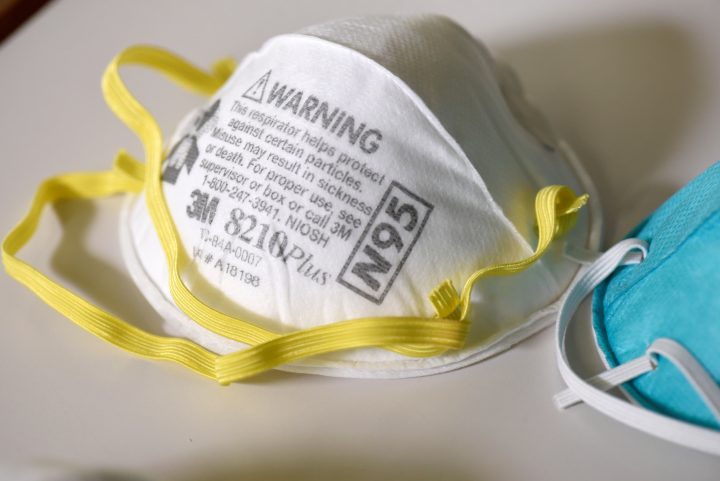The Manitoba government has made a public plea for medical supplies and personal protective equipment to help in the ongoing response to the coronavirus pandemic.

This week the province announced $100 million in spending to boost its supply of essential medical supplies, hotel capacity and other critical equipment.
The government now says it’s specifically looking for N95 masks, surgical masks, gloves, medical gowns and additional medical supplies to help in the fight against COVID-19.
“The Manitoba government asks that businesses and individuals able to provide products or services to contact the provincial government immediately and see how they are able to help,” reads a COVID-19 procurement bulletin posted Tuesday.
Manitoba manufacturers or businesses able to provide supplies, or those that can re-tool and rapidly scale up production lines for the needed items, are asked to fill out an online submission form on the government’s website.
Shared Health is also calling on businesses that have personal protective equipment on hand to donate the items if possible. It’s looking for supplies in their original packaging, or that are clean and in usable condition. Information on donations is available at Shared Health’s website.

Get weekly health news
Drop-off locations are open in Winnipeg, Brandon, Portage la Prairie, Selkirk, Winkler and Steinbach, the government added.

Questions about COVID-19? Here are some things you need to know:
Health officials caution against all international travel. Returning travellers are legally obligated to self-isolate for 14 days, beginning March 26, in case they develop symptoms and to prevent spreading the virus to others. Some provinces and territories have also implemented additional recommendations or enforcement measures to ensure those returning to the area self-isolate.
Symptoms can include fever, cough and difficulty breathing — very similar to a cold or flu. Some people can develop a more severe illness. People most at risk of this include older adults and people with severe chronic medical conditions like heart, lung or kidney disease. If you develop symptoms, contact public health authorities.
To prevent the virus from spreading, experts recommend frequent handwashing and coughing into your sleeve. They also recommend minimizing contact with others, staying home as much as possible and maintaining a distance of two metres from other people if you go out.
For full COVID-19 coverage from Global News, click here.









Comments